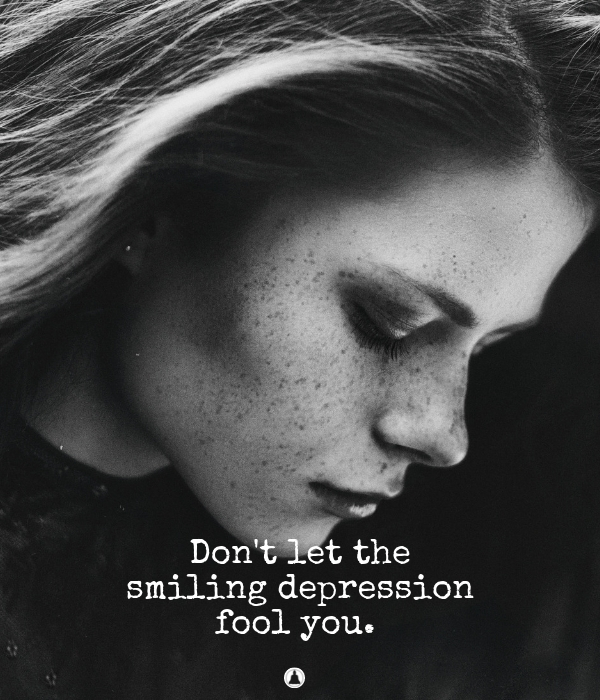Join Our Newsletter
Subscribe with your email to receive the latest news, updates, and exclusive offers.

When we think of a person who is suffering from depression, we typically imagine them sad, desperate, snuggled in bed, and incapable of leading a normal, active life. However, the way depression manifests itself can vary from person to person.
There are people who don’t even know that they’re suffering from depression since they appear to be great at managing their daily activities. They can appear happy and they can carry pleasant conversations with you every time you meet them but feel down and hopeless on the inside at the same time.
In my experience, it’s usually those people who are the most positive and who smile from ear to ear whenever you meet them that fight depression internally.
It can be really difficult to spot someone struggling with smiling depression. Some are not aware of their condition themselves and others don’t want other people to feel sorry for them or consider them “weak,” so they try to ignore and hide their own true feelings. They put on a mask to those around them.
However, the cheerful, wide smile is just a façade behind which they hide their sadness and torment from the world. The sadness can be about a breakup, a health condition, a loss of a loved one, problems at work, or not having a purpose in life.

People fighting smiling depression may appear like they lead a completely normal and active life – they often have a steady job, a house, a partner, and children, and they have no problem socializing with others. However, behind that mask, there’s a person struggling with insomnia, despair, low self-esteem, and even suicidal thoughts in some instances.
When it comes to suicide, people fighting smiling depression are more likely to “end it all” than those struggling with classic depression. The reason for this is that they have the energy to plan their suicide and follow it through. That’s why smiling depression is more dangerous and life-threatening than classic depression.
Nevertheless, smiling depression can be cured. Psychotherapy or counseling are two great ways in which a person fighting this mental health condition can be freed from it. However, if you know someone who is struggling with smiling depression and you want to offer them your help, know that they might deny it and even react negatively when you first try to reach out to them.
And this is not unexpected. Because they may not be aware of their mental health condition or they may see accepting or asking for your help as a sign of weakness. And if they refuse to talk to a professional therapist, you can always try to be there for them. You can gain their trust and show them that you truly want to help them by talking about your feelings and problems first. In this way, you’ll encourage them to share their own with you.
Always remember that it feels great when you have someone who genuinely cares about you and supports you. Someone you can trust and rely on when you need them. Someone that shows you that your life matters.
